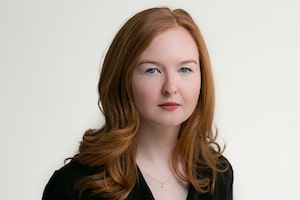
Police are seen near a damaged van in Toronto after a van mounted a sidewalk crashing into a number of pedestrians on April 23, 2018.Aaron Vincent Elkaim/The Canadian Press
Alek Minassian’s explanation for what motivated his mass killing shifted several times, the Crown argued at his murder trial Thursday in an attempt to cast doubt on a forensic psychiatrist’s assessment of him.
The 28-year-old man from Richmond Hill, Ont., is on trial for 10 counts of first-degree murder and 16 counts of attempted murder in connection with the April 23, 2018, van attack, in which he used a rented van as a weapon to run down pedestrians on Toronto’s busy Yonge Street.
Mr. Minassian’s defence team argues he is not criminally responsible for the mass killing because he has autism spectrum disorder (ASD), which they say made him unable to rationally understand that what he was doing was wrong.
Autism isn’t on trial in the Toronto van attack case. The accused is
Dr. Rebecca Chauhan, a witness for the defence and a psychiatrist who assessed Mr. Minassian after his arrest in order to confirm his diagnosis, returned for a second day of testimony, this time for cross-examination by assistant Crown attorney John Rinaldi.
In her report, Dr. Chauhan described Mr. Minassian as being “hyper-focused” and even “indoctrinated” by the writings of Elliot Rodger, a mass killer affiliated with the incel subculture.
Incels (short for involuntary celibates) are part of a predominantly online network of misogynistic men who blame women for their inability to have sexual relationships. In his police interview after the attack, Mr. Minassian expressed a particular allegiance to Mr. Rodger who, before he killed six people and then himself in California in 2014, published a 137-page manifesto outlining his hatred toward women.
Mr. Rinaldi took issue with Dr. Chauhan’s findings of incel indoctrination, arguing that Mr. Minassian “had mass murder on his mind well before” he ever learned about incels or Mr. Rodger.
Through snippets of various doctors’ notes and reports presented by the Crown, court heard that Mr. Minassian had said he “fantasized” about becoming a school shooter as a teenager. Starting around 2009, he began perusing entries about mass murderers on Wikipedia.
He pictured himself carrying out such an attack – and enjoyed the idea of the notoriety it would bring. But he said he didn’t know how to obtain a gun without getting hurt or getting caught.
Those various reports also reflected a shift in narrative by Mr. Minassian, over time. For example, while he told police in his interrogation immediately after the attack about rejection he’d faced by women at a Halloween party in 2013, he later told doctors that he made up that story based on what he’d read in Mr. Rodger’s manifesto. In one interview, he even walked back his connection to the incel subculture, instead citing his motivation for the attack as anxiety about a new job.
Mr. Rinaldi pointed to these inconsistencies, arguing that for this very reason, the assessments of Mr. Minassian’s symptoms are subjective.
For example, he took issue with Dr. Chauhan’s finding that Mr. Minassian had a “significant impairment” in his ability to have reciprocal conversation.
“I’m going to suggest that while there was an impairment, it was not significant – it was slight,” Mr. Rinaldi said.
“When he’s recounting facts, he does pretty well,” Dr. Chauhan agreed, but she stressed that it was a one-way conversation, with him requiring prompting to give responses.
Similarly, Mr. Rinaldi took issue with Dr. Chauhan’s assessment that Mr. Minassian lacked insight into the ways his ASD diagnosis affected him. He pointed to notes taken by another psychiatrist, who noted that Mr. Minassian said he “exaggerated it” in high school, but “in college ... it was the reverse, I tried to act normal so that I would fit in.”
Dr. Chauhan agreed that testing scores in certain areas could fluctuate depending on the assessor and what they are told or observe, but she was firm that the overall diagnosis would be unlikely to change.
“I agree there is variability in tests and scoring,” she said. “But ... I wouldn’t expect that somebody is going to go from having an autism spectrum disorder diagnosis to not having an autism spectrum disorder diagnosis.”
Our Morning Update and Evening Update newsletters are written by Globe editors, giving you a concise summary of the day’s most important headlines. Sign up today.
 Molly Hayes
Molly Hayes